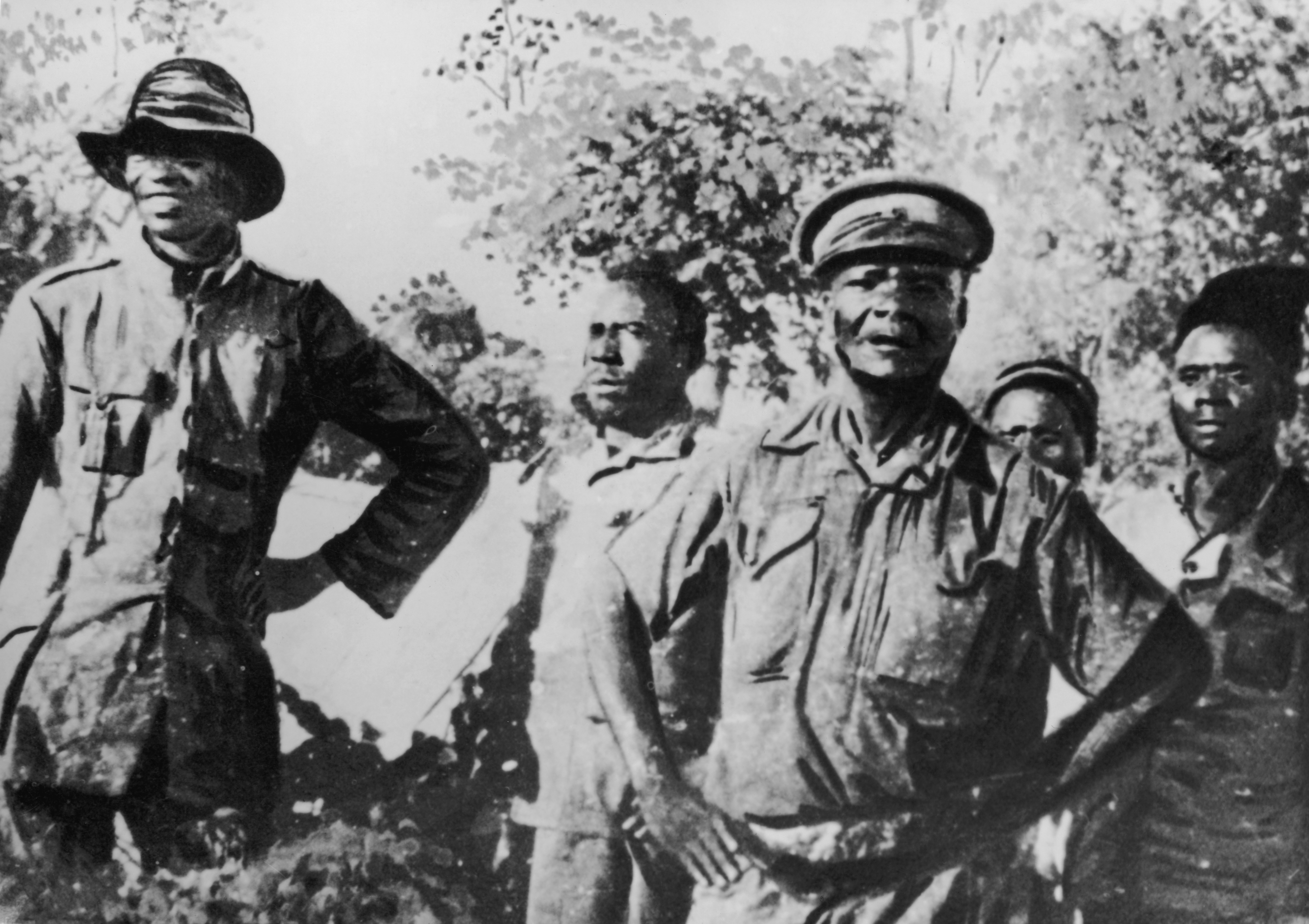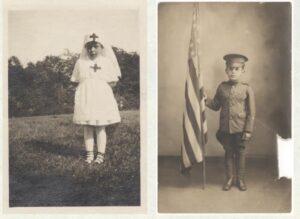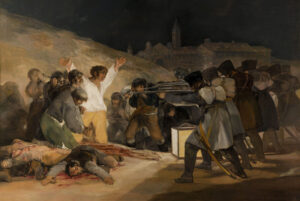East Africa tribesmen demonstrated remarkable loyalty to a charismatic German commander in World War I.
Many a World War I historian has tried to explain why Africans in the German colonies, Askari soldiers as well as bearers, exhibited such a high level of loyalty throughout four years of guerrilla warfare. Neither they nor their European comrades received adequate pay or compensation during most of these years. For the most part, they and their officers had no contact with Germany.
Their leader, Paul Emil von Lettow-Vorbeck, was an ordinary man who fought a war under extraordinary circumstances. Trained along the strict lines of the Prussian War Academy, he became a lieutenant at age 18 and entered service in the 4th Guard Regiment Dismounted. Yet this young Prussian lieutenant became one of the 20th century’s greatest guerrilla leaders, and the only undefeated German commander of World War I. Two years after the conflict ended, he published his impressions of warfare in the German colonies, My Reminiscences of East Africa (republished in 1990 by Battery Press).
In 1914 Lieutenant Colonel von Lettow-Vorbeck, Kommandeur der Schutztruppen, Deutsch-Ostafrika (commander, German East African Protective Force), took over a small force of 216 Europeans and 2,540 Askaris, native East African soldiers. Shortly after the outbreak of hostilities the 102-man crew of the scuttled German surveying vessel Möwe, and in 1915 the 322 crew members of the scuttled cruiser Königsberg, became soldiers of the Schutz-truppe. From the cruiser they scavenged much-needed artillery.
At first they engaged in pitched battles, repelling an amphibious attack of Indian soldiers at Tanga on November 25, 1914, and beating a British-led force at Jassin on January 18, 1915. However, both victories were costly in supplies and irreplaceable officers. From that point on, the German force avoided battle whenever possible and instead raided forts, railways, and communications.
Throughout the war, roughly 3,000 Europeans and 11,000 Askaris were enrolled in the Schutztruppe, along with some 8,000 native bearers. In 1917 the bearers would become an important element when von Lettow-Vorbeck’s Schutztruppe became a true guerrilla force.
During more than four years of relentless attempts, British, Belgian, and Portuguese colonial forces were unable to capture the crafty and capable von Lettow-Vorbeck. Under his leadership, the Schutztruppe parried attacking British forces north and south along the Indian Ocean coastlands of German East Africa (in modern Tanzania). They would detour into the interior from time to time, but soon returned to the fertile coastal area.
That only changed in 1917. By that time the Schutztruppe had become a highly efficient, well-trained guerrilla force. Driven from German East Africa by overwhelming numbers, von Lettow-Vorbeck entered Portuguese East Africa (Mozambique), where he continued his vigorous guerrilla campaign. There, the troops captured Portuguese military posts, providing the raiders with weapons, munitions, and supplies.
In essence, the Schutztruppe fought most of the four years of war with captured supplies. This helped von Lettow-Vorbeck achieve his goal: to engage as many enemy troops as possible so that they could not be used against the kaiser’s forces in Europe.
In late September 1918, the Schutztruppe briefly reentered German East Africa. By this time von Lettow-Vorbeck’s force had been reduced to 155 Europeans, including 55 officers, medical officers, and government officials; 1,168 Askaris; and 3,000 nonmilitary Africans—bearers and camp followers. In German East Africa, he captured several small posts before marching into British Northern Rhodesia. Finally, on November 14, 1918, when the British managed to inform von Lettow-Vorbeck of the Armistice, he ceased hostile activities, but he did not lay down his arms until November 23.
In a reminiscence published in a German magazine in 1940, a Dr. Dannert provided rare insights into the remarkable relationship between the native troops and their white officers. Dannert was a former district judge in German South-West and East Africa, and he later served as the aide-de-camp to the commander of Western Forces, a subelement of von Lettow-Vorbeck’s combat command. Dannert titled his memoir Mie Askari mdachi—Ich bin ein Deutscher Askari, and in it he recalled the pride he felt whenever he heard a native soldier utter those words. To Dannert, that phrase gained new significance during operations in the middle of 1917 when Western Forces Command received curt orders from General von Lettow-Vorbeck to defend the Mahenge area until all provisions were exhausted, and then to disengage from the enemy and rejoin the main Schutztruppe combat element.
While fighting a delaying action, Western Forces Command became surrounded. The command had lost contact with the main body, which was reportedly located at Lindi and on the Makonde plateau. Its rations depleted, Western Forces Command pulled out of the Mahenge area and reassembled at Kabatimtoto, Mponda, and Dapate, northwest of Livale.
In early October, this element broke through enemy lines in a southerly direction, attempting to reestablish contact with von Lettow-Vorbeck’s main combat command. Hunger, thirst, and disease had depleted the unit’s effectiveness.
Daily rations had been reduced from five hundred grams of corn (or millet flower) to 300 grams. On October 27, 1917, after several bloody but victorious engagements, Western Forces Command arrived at the Rovuma River near the mouth of the Mwiti River, only to find that von Lettow-Vorbeck had left the area three days earlier and marched toward Rovuma.
In an area devoid of people and wildlife, the commander of Western Forces Command, having just issued the last bit of rations the previous day, realized that his soldiers either had to starve to death or surrender to the pursuing enemy. Unwilling to surrender, the commander decided to make one last desperate attempt to unite the remainder of his force with the main body.
To do so, he had to leave the sick and wounded to the mercy of his pursuers. He ordered Dannert to remain with the incapacitated and to surrender to the British. Early the following morning, Dannert reorganized his unit and marched five officers, two doctors, 53 other Europeans, 133 Askaris, and more than 1,200 bearers north toward British-occupied Luatalla Station, a position where the Western Forces Command had just a few days before defeated an Indian regiment. Before departing, Dannert cautioned his troops that the British would do everything in their power to obtain information about their comrades.
About noon, when they arrived at Luatalla, the superbly correct English commander there stared in surprise at the troops offering their surrender. The young English captain made every effort to accommodate his starving enemies. However, that changed soon after the news of the surrender became known.
Another English officer arrived by automobile and introduced himself as an intelligence officer. He wanted to know the names of units and of their commanding officers, their locations, the location of the Schutztruppe’s main body, and all sorts of other military information. Dannert told him they had come out of the Pori, the bush, and that everyone there was a member of German East African Forces. The English officer demanded to know the location of the rest of Dannert’s unit. Dannert told him, “They are still in the Pori.” He then informed the intelligence officer that neither he nor his troops were obligated to tell him more than that. The officer became very threatening and said that if the Europeans would not talk, he would get the answers from the Askaris. Convinced that his men would tell the Englishmen nothing more, Dannert told the captain that any attempt to make the Askaris betray their comrades would be unsuccessful.
The intelligence officer ordered Dannert to have his Askaris fall into formation. Dannert told the Askaris that the English officer intended to ask them the name of their organization.
Smiles and chuckles followed when the intelligence officer, in broken Kiswahili, informed the Askaris that because the Germans had been driven from German East Africa, the troops were now under English authority and thus subject to English orders. He commanded the Askaris to divulge their unit, the name of their company commander, and their unit’s last known location.
Then he approached the senior Askari at the head of the line and resumed his questioning. The man stood at attention, and to each of the captain’s questions he answered, “I say nothing, Sir.” The English officer received this same answer, “I refuse to answer, Sir Captain,” from each of the other Askari NCOs, privates, and recruits. With each refusal to answer, the captain became more infuriated. Several hundred pairs of eyes followed him. To Dannert it seemed as if the English officer sensed the triumph emanating not only from the Germans and the Askaris but also from other natives watching the procedure.
Totally enraged, the officer screamed that he would ask these questions just once more time, and if he did not receive satisfactory answers he would select three men at random to be shot.
Dannert confronted the captain, protesting that his actions constituted a violation of the rights of prisoners of war, but the English officer refused to reconsider. He ordered Dannert to convey his decision to the Askaris.
Dannert turned to his soldiers. “I have told you of the Englishman’s threat,” he said. “You know he means what he said. It is up to you to decide what you must do.” The English officer started his inquisition anew. Again he received the same brief answer, “I know nothing.” This time the captain rewarded each Askari’s refusal to answer with a vicious hit of his bullwhip across the face.
Dannert later recalled, “Each time I heard this answer, a hot flash of compassion and pride coursed through my veins.” The Englishman apparently thought differently. His face reflected his anger over the Askaris’ refusal to betray their comrades. He could not understand how these black men could so ably demonstrate the essence of soldiering. To him it was incomprehensible that these half-starved, sick Askaris were warriors of the highest degree. He found that despite his physical abuse and death threats, the Askaris remained unyielding.
Throughout this confrontation, the Askaris maintained a high degree of discipline; their faces reflected pride and disgust over their mistreatment by the white enemy officer. Only once was there a lighter interlude in this ugly scene. After unsuccessfully interrogating some of the older soldiers, the intelligence officer approached the youngest Askari and asked him, in a friendly tone, “How old are you?”
“Still a recruit,” was the short reply. “So how long have you been a soldier?” “One year.”
“Have you been in battle?”
“Yes Sir, I have already shot dead ten Englishmen.”
The English officer replied, “Then you are a respectable Askari.” He handed him a silver rupee, the East African money worth about 1.33 German marks. At that moment the recruit was probably the richest man in the entire company, because neither the Europeans nor the Askaris had been paid hard cash in several years.
The recruit stared in disbelief first at the silver coin in his brown hand, then into the smiling face of the English officer, then again at the silver coin. He looked at his glittering treasure, turned it over, and looked again.
The English officer was confident that he had that recruit in the palm of his hand. “Now tell me,” he suddenly asked, “what was the name of your captain?”
The recruit suddenly realized that he was being asked to betray his comrades. To make sure he could keep the coin, he stuck it deep into his pocket, and shouted, “Just look at this man, he wants to cheat the people.”
The Askari, the black bearers, and the local blacks had watched this exchange with anticipation; now the watchers broke out in loud laughter. It earned the recruit the Englishman’s customary bullwhip beating.
To avoid witnessing the demeaning interrogation of his Askaris, Dannert had retreated to the right flank of his company. Suddenly he heard steps approaching from behind and saw two English soldiers with fixed bayonets escorting Askari Schausch, an old Sudanese veteran of many battles. As the trio passed, Askari Schausch stopped in front of Dannert and came to attention.
Dannert asked, “What is it you want?” Schausch replied, “I want to say goodbye, Sir. I will get my bullet.”
Dannert looked at Schausch. There stood a simple son of the steppes of Africa dressed in rags, starved, disease-ridden from years of brutal warfare, and arbitrarily sentenced to death by a white man. Yet this black soldier was true to his soldier’s oath.
Dannert, in shock from this new development, could only say: “Schausch, you are a soldier, as am I. We are both prisoners of the English.”
“It is God’s will, sir,” replied the old Askari. He then added, “I am a German Askari.” Dannert assumed that it meant “As such, I also know how to die.”
The two shook hands, and then the old Askari stepped back between his escorts as he commanded, “God willing. Let’s go.” This happened twice more. The next one was Askari Ombascha, a native corporal, and last came an Askari recruit. Both departed with the words, “I am a German Askari.”
Dannert rushed over to the English officer. He demanded to know what he intended to do with the three Askaris.
“They will be shot. I told you earlier what would happen.”
“Why? For what?”
“Because this unit has refused to answer my questions. I warned you and the Askari in advance what would happen.”
“These are soldiers. They have not refused to answer your questions. They have simply refused to betray their comrades. What you are doing is not only a travesty; it sullies the honor of every soldier, and it violates international law—a law that England recognizes; a law that binds you personally.”
Dannert was desperate. He was willing to play his last card, a trump. “I know that General von Lettow-Vorbeck still has 81 English officer prisoners of war. I promise you that I will, regardless of all the guards you may post, pass word via the blacks in the bush. If those three men are not returned within 24 hours, the general will have three English officers shot. Furthermore, I know your name, and I will ask him to do his utmost to bring retribution against you personally.”
The intelligence officer replied condescendingly, “For a prisoner, you are extremely arrogant.” But Dannert noticed that the man’s voice had lost much of its swagger. “My only concern is the lives of innocent men,” Dannert retorted as he departed, this time without rendering the customary salute. MHQ
[hr]
This article originally appeared in the Summer 2007 issue (Vol. 19, No. 4) of MHQ—The Quarterly Journal of Military History with the headline: Mie Askari mdachi: I Am A German Askari

Want to have the lavishly illustrated, premium-quality print edition of MHQ delivered directly to you four times a year? Subscribe now at special savings!





